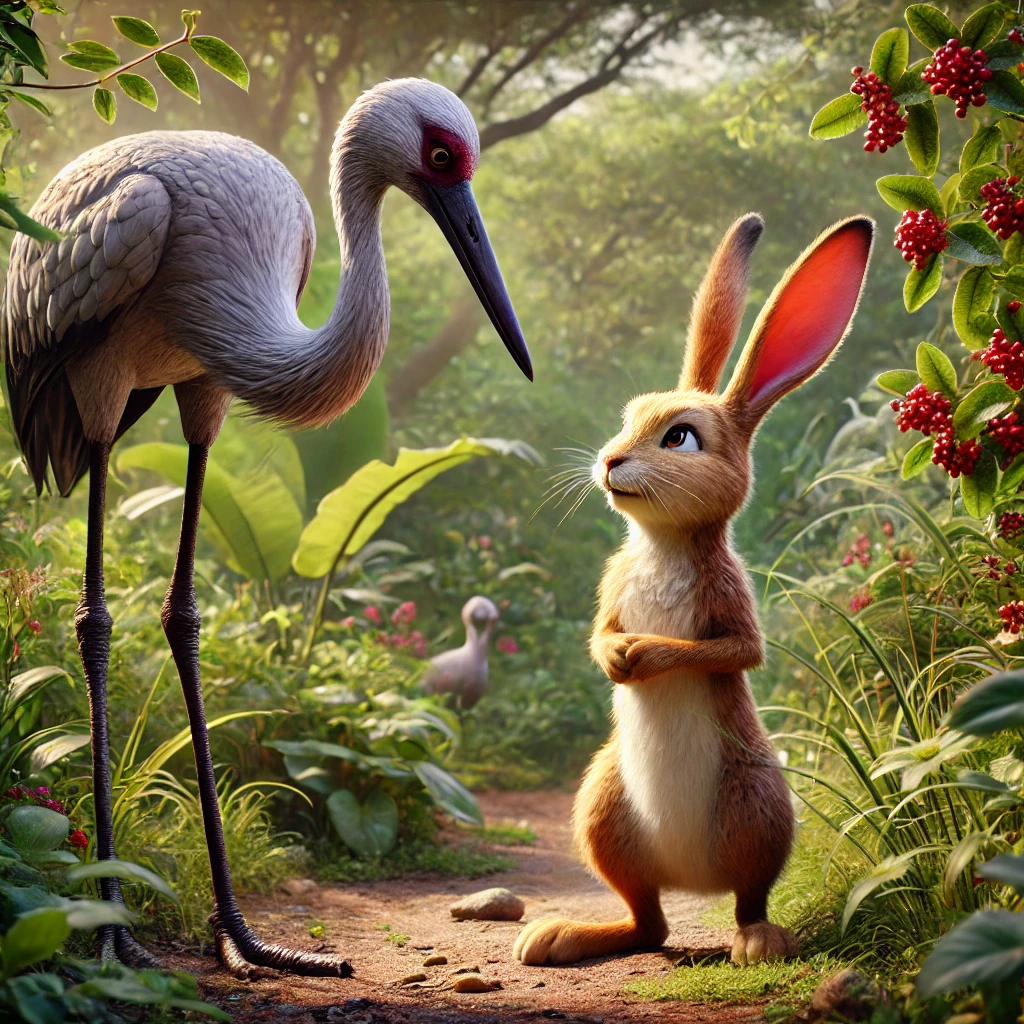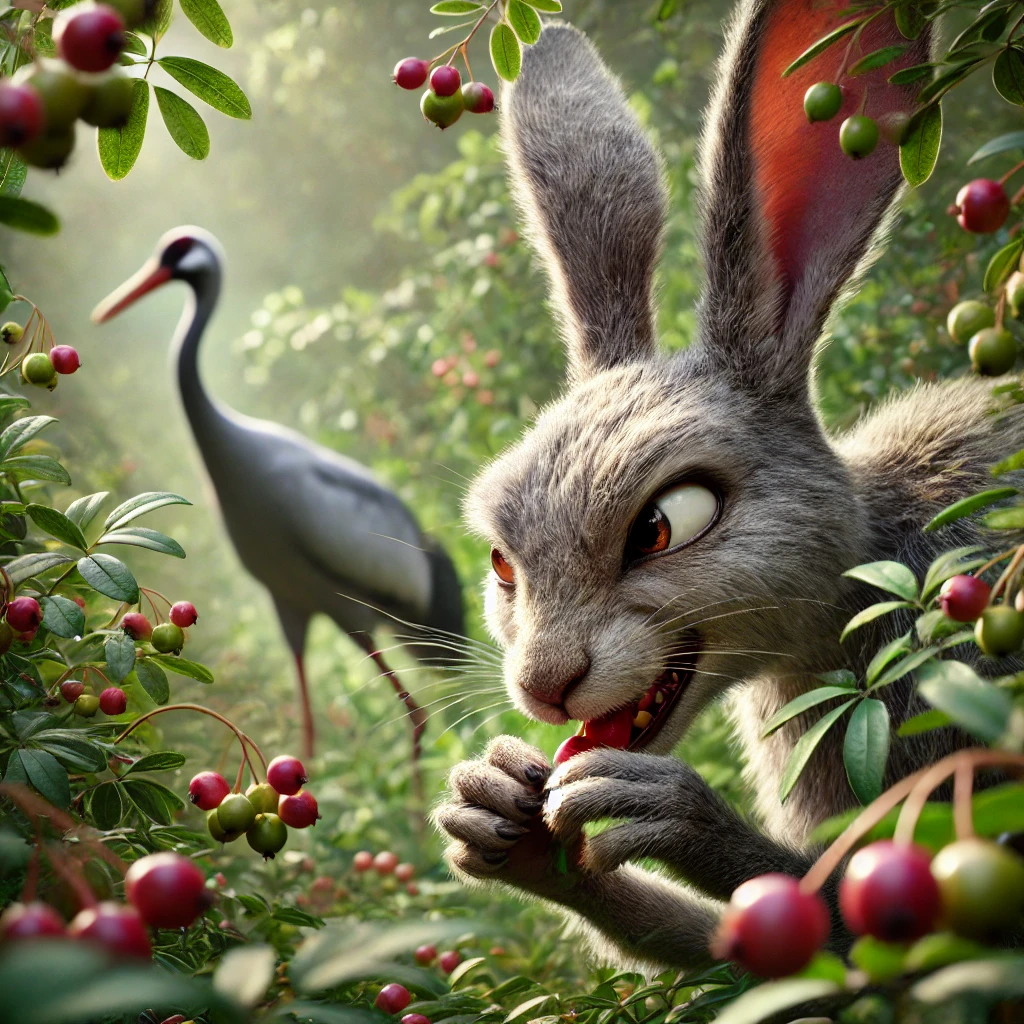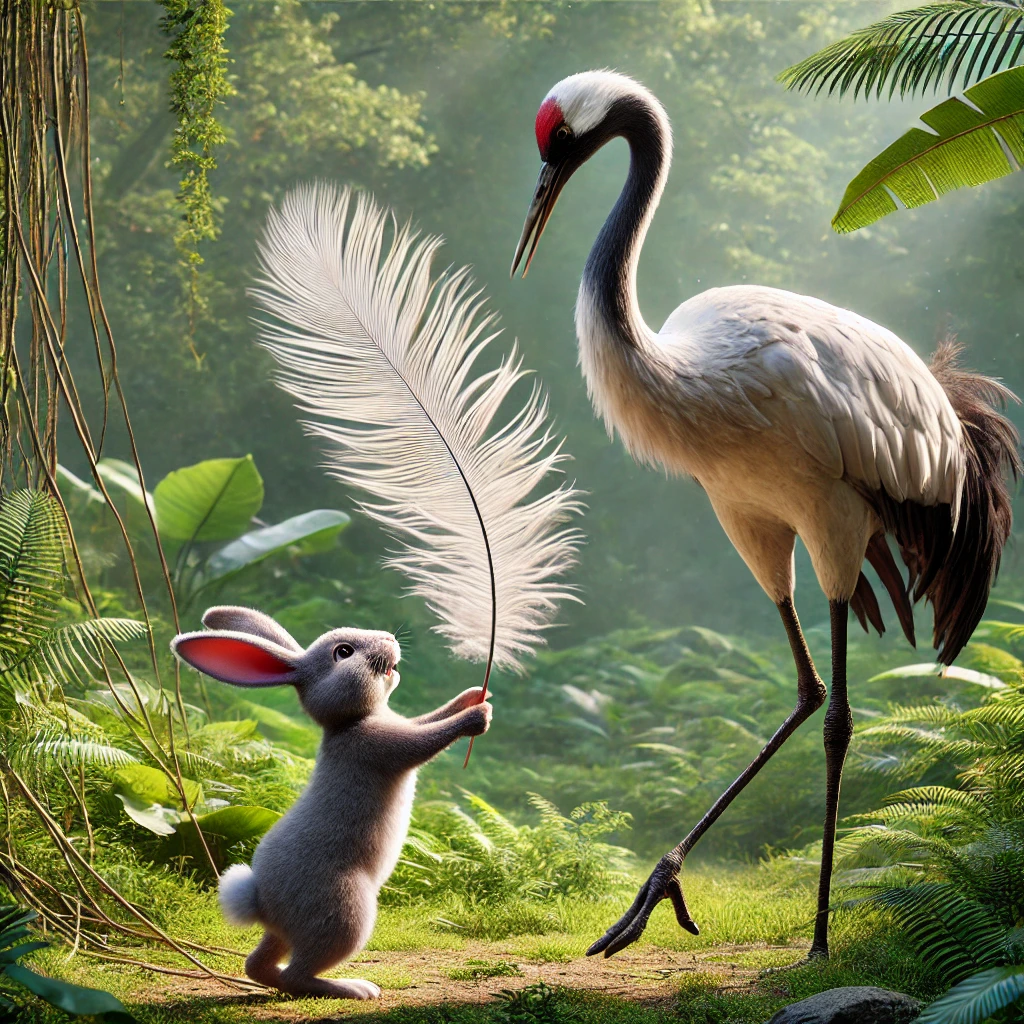ONCE UPON A TIME there were a man and a woman. They lived for many days in the land of Tata, and a son was born to them. Their fortune consisted of a hundred cattle. Beyond these they did not have a single calf; they had nothing but the cattle.
As time went by the son grew and became a big child, and when the boy was fifteen years of age, his father died. Several years later, his mother also died. So the young man had a heritage from both his parents – he inherited the hundred cattle which were left to him. He stayed in his home and observed the time of mourning for his parents. When he had finished mourning he felt an urge to look for a woman to marry.
He said to his neighbors, “I want to marry a woman, for my parents are dead and I am all alone now. I cannot stay alone. I must get married.”
His neighbors said to him, “Surely, get married, for indeed you are lonely now. We shall look around for you so that you may find a suitable woman to marry.”‘
He said, “Yes, be it so.”
Later, he said, “I would like somebody to go out and look for a woman for me.”
The said, “If God wills it!”
So one of the neighbors rose and went and looked for a woman whom the young man could marry, until he found one. Then he came and said to him, “I have found such a woman as you want, but she is not from this town.”
He asked, “Where, then, does she live?” the neighbor said, “In a different town, pretty far away. I think it takes eight hours of traveling from here to get there.”
He asked him, “Whose daughter is this girl?”
And the neighbor said to him, “She is the daughter of Abdallah, and her father is very rich. This woman owns six thousand cattle. The father has no other child, just this one daughter.”
When the young man heard this, he was all full of desire to obtain this woman, and he said to his neighbor, “Would you go there tomorrow and carry my answer – which is that I am agreeable.”
The neighbor said, “God willing, I will go there tomorrow.” And at da. n, the matchmaker rose and traveled until he came to old Abdallah, and he carried the young man’s message to him, and related all that had happened.
Finally the father answered him, saying, “I have heard yor words, but I desire that anyone who wants to marry my daighter should give me a hundred cattle as a bride-price. If he gives such a bride-price I will give him my daughter for wife.”
The matchmaker said, “God willing, I shall go and carry the amswer to him.” The father said to him, “Yes, do that!”
The matchmaker rose and went back, and gave the young man the answer. He told him everything that had been discussed.
The young man said, “I have heard your words, but he wants a hundred cattle as a bride-price, and I have just a hundred cattle. If I give them all to him, what will my wife have to live on, if she comes to me? I have no other fortune but these hundred cattle which i have inherited from my father.”
Finally, his neighbor said to him, “Well now, if you do not want her, tell me so. Then I can go and carry back your reply; or if you want her, tell me so definitely.”
The young man bowed his head and meditated and, when he raised his head again, he said, “It does not matter, go and say that I accept. I will go and fetch the hundred cattle and give them to him.”
So the matchmaker got up and went to the father of the girl and said to him, “The young man is willng to pay the hundred cattle.”
And the father said, “I am willing then that he should take my daughter.”
They talked over the details, and then someone was sent to bring the young man. The latter came and was amiably received, and they discussed the marriage. So the young man was wedded to the girl and paid the hundred cattle, and the wedding feast was celebrated.
Then the young man took his wife and traveled home. There they remained at first ten days; but when the provisions which they had taken along were used up, the young man had nothing for his wife to eat. Then he said to her, “Dear wife, now I have nothing left to eat. Formerly, I had my cattle. these I milked and thus I had my sustence; but now I have given my cattle away for you and, therefore, I have nothing left. Dear wife, I will go now to my neighbors and from those who have cows I shall obtain some milk, however little it be, so that we shall have something to eat.”
Then the woman said to him, “Yes, dear husband!”
So the young man went out and this now became his occupation. Every day he went out and milked other people’s cows, so that he could have something to eat for himself and his wife. This he continued to do every day.
One day his wife went out and placed herself in front of her door just as a very handsome young man passed by. When he saw the woman standing by the door, he was seized with a desire to seduce her. Thereupon he sent a procurer to talk to the woman.
The woman said, “God is my witness that I have heard the message you convey to me, but you must wait a little longer, until I have made up my mind, and then I will let you l know. I cannot answer yet.” So the procurer rose and went home.
Three months later, the woman’s father thought to himself, “I must go and pay a visit to my daughter and her husband.” So he started on his journey and went his way until he came to his son-in-law’s house. Arrived there, he knocked at the door. The daughter got up and answered, “Who is there?”
The old man said, “It is I Abdallah.”
The daughter rose and said to him, “Will you not come in?”
So he entered and exchanged greetings with his daughter, and she invited him into the hall, and the old man sat down there. The father asked the daughter how she was getting along, and she said, “Pretty well, my father.”
Finally the daughter got up, went away from where her father was sitting and went into her room, cogitating and crying prosusely, because there was not the slightest bit of food in the house that she could cook for her father. then she left by the back door, and when she looked behind the yard, she noticed the young man who wanted to seduce her, and he called to her to come nearer. So she went over to him and said to him “How are you getting along, sir?”
He said, “I once sent someone to you, and you said that you would come to me for a visit, but you have not come. Why are you so wavering?” Since I saw you that day more; every day, when I lie down, I dream only of you in my sleep.”
The woman answered him saying, “God be my witness, I shall not harass you any more. If you long for me I shall come without delay. First, however, get a piece of meat for me, so that I can cook something to eat for my guest. I sahll come afterward.”
The young man aksed her, “Who is your guest?”
The woman replied, saying, “It is my father whom I receive as a guest.”
Thereupon he said, “You wait here, and i will bring you some meat right away.”
So he rose and went out, and the woman remained standing there. A little later, he returned with a quarter of beef and said to her, “Here is the meat, but now do not put me off any longer.”
She said, “God be my witness, I shall not put you off.”
He stretched out his hand and gave her the meat, and the woman took it and went back into her house. Then he who had given her the meat paced up and down outside and waited for the fulfillment of the promise that the woman had made him.
After the woman returned, she took the meat, cut it into pieces, and put it into the pot. As soon as she had placed it in the pot, her husband came back and found his father-in-law sitting in the hall. As he saw his father-in-law sitting in the hall, his blood rose. He could not find a word to say, not did he know what to do. He greeted him according to custom and asked him how he was getting along. After that he went to his wife and found her cooking meat and asked her, “I am cooking meat.”
He asked, “Where did you get this meat from?”
She said, “I received it from the neighbors; they have given it to me.”
When her husband heard this he remained silent and became sad because he was so terribly poor.
Then he said to his wife, “My dear wife, what shall we do now that we have not only ourselves to feed but also a guest?”
His wife answered him saying, “I do not know what we shall do.”
Then the man said, “I will go out to the rich people where I milk the cows and tell them, “I have a guest staying with me now, and I would like you to give something, whatever it be, to cook for my guest.’ “So he rose, went to rich people where he worked, and apprised them of everything that had happened to him.
These rich people were sympathetic and gave him a little meat and a little milk, which he took. Then he went home.
At his house, in the meantime, his wife had finished cooking the meat that she had received from her would-be seducer. When her husband returned with the meat, the woman put out her hand, accepted it, and laid it on the floor. then the husband rose and washed his hands and went into the hall. The woman in the kitchen withdraw the meat from the pot and placed it on the platter from which they were accustomed to eat.
Now the would-be seducer had remained where he was, walking up and down, until he saw that the time, which had been agreed upon with the woman, had passed. Then he said to his heart, “The best thing for me to do is to pass by the front door and look inside. erhaps I shall see the woman.” So he went off and passed by the door, and encountered the woman’s husband and the father-in-law sitting and chatting. When the wicked man saw that, he greeted them, and the woman’s husband anwsered the greeting, inviting him to approach. So the wicked man came up and sat down.
Then they conversed together, the woman’s husband having no inklings of the stranger’s plan and of what he really wanted. Thus they conversed with each other – the woman’s father, and the woman’s husband, and that impious creature who wanted to disturb the peace of the young man’s house. The three men stayed together in the hall.
As soon as the woman inside had placed the meat on the platter, she brought it out into the hall. As soon as her husband rose to be handed the meat, the woman said, “Eat now, you three fools!”
Thereupon her father began, saying, “Well now, wherefore am I a fool?”
His daughter answered him, saying, “Please, father, eat first. Afterwards I shall tell you all about your foolishness.”
But the father said, “No, I shall not eat, but you shall first tell me about my foolishness. After that, I shall eat.”
Thereupon the daughter rose and said, “My father, you have sold an expensive object for a cheap one.”
Her father said to her, “What is it that i have sold too cheaply?”
She said, “It is I, my father whom you have sold too cheaply.”
He said, “Why so?”
She said, “Father, you have no daughter and no child except only me and you went and sold me for a hundred cattle, yet you, father, have six thousand cattle anyhow. You have regarded a hundred cattle as more valuable than me. That is why I have said, “You have gfiven up a valuable thing for a cheap one.”
The father answered, “That is true, my child, I was a fool.”
then her husband rose and said, “Now, please, tell me the nature of my foolishness too.”
The woman said to him, “You are even a greater fool.”
He said, “Why that?’
She said, “You inherited a hundred cattle from your parents, not a single calf more did you inherit. And you took them all and wedded me in exchange for them, in exchange for all your hundred cattle, yet there were so many women in your own town whose bride-price amounted to only ten or twenty cattle. But you did not look at them. Instead, you came and married me in exchange for all your cattle. And now you have nothing, not even anything to eat for me and for yourself, and you have become a servant of others. You go and milk the cows of other people to get something to eat. Had you kept half of your herd of cattle and married a woman with the other half, you would have had something to eat. Therefore, this is your foolishness, my dear husband.”
Then the worthless knave asked, “And wherein does my foolishness consist? Tell me!”
thereupon the woman rose and said, “You are even a greater fool than both the others.”
And he asked her, “Why is that?”
She answered him, saying, “You wanted to get with a single quarter of beef what had been bought for a hundred cattle. Are you not, therefore, a fool?”
He jumped up in a hurry and ran away as quickly as he could.
The woman’s father stayed with them for two days. On the third day he made his preparation for taking leave and then went home. When he arrived at his house, he unhobbled the cattle which he had received from his son-in-law and sent them back to him. With them he sent another two hundred. Thus his daughter could live in comfort with her husband for many days.
[ SWAHILI ]






